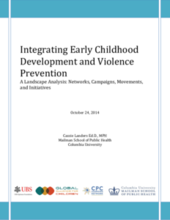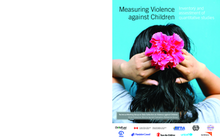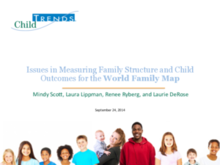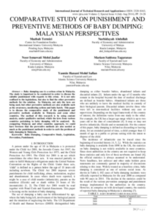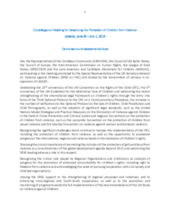Displaying 1071 - 1080 of 1343
This review aims at gaining a better understanding of the landscape of, and support efforts by, the Early Childhood Development and Violence Prevention communities through identifying networks, campaigns, movements, and initiatives
This report presents the findings from the Child Protection Monitoring and Evaluation Reference Group’s review of data-collection activities in primarily low and middle-income countries.
This presentation from the "The State of the Evidence on Children’s Care" symposium, by Mindy Scott, Laura Lippman, Renee Ryberg, and Laurie DeRose of Child Trends, discusses the World Family Map project and some of its findings related to children’s care.
This report highlights the prevalence of different forms of violence against children. It is based on global figures and data from 190 countries.
Analyzing Malaysian and international practices in regards to “baby-dumping,” the authors of this research article are raising awareness of the punitive approach of the criminal justice system in handling baby dumping cases in Malaysia and other countries, as well as the limited, although important, prevention opportunities.
This literature review highlights the practices, policies and research on violence and abuse prevention in early childhood. it is guided by a socio-ecological model of contexts, participants and interactional complexity.
The Future of Children, a collaboration of Princeton University’s Woodrow Wilson School of Public and International Affairs and the Brookings Institute, has launched a new project entitled “The Child & Family Blog.”
In this chapter of the Handbook of Child Well-Being, the authors review the findings from research on the cognitive and social-emotional development of children growing up in institutions, foster care and adoption.
Special Representative of the Secretary General on Violence Against Children, (SRSG on VAC), Marta Santos Pais, promoted a Cross-Regional Round Table on the prevention of violence in early childhood with representatives from several regional organisations.
Harold Goodwin, the man behind Responsible Tourism day at the World Travel Market and the International Centre for Responsible Tourism, gives his thoughts after attending the Better Volunteering, Better Care workshop.

